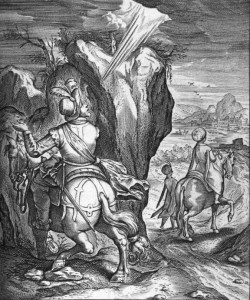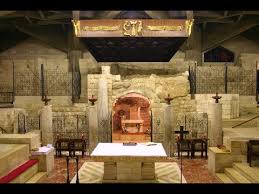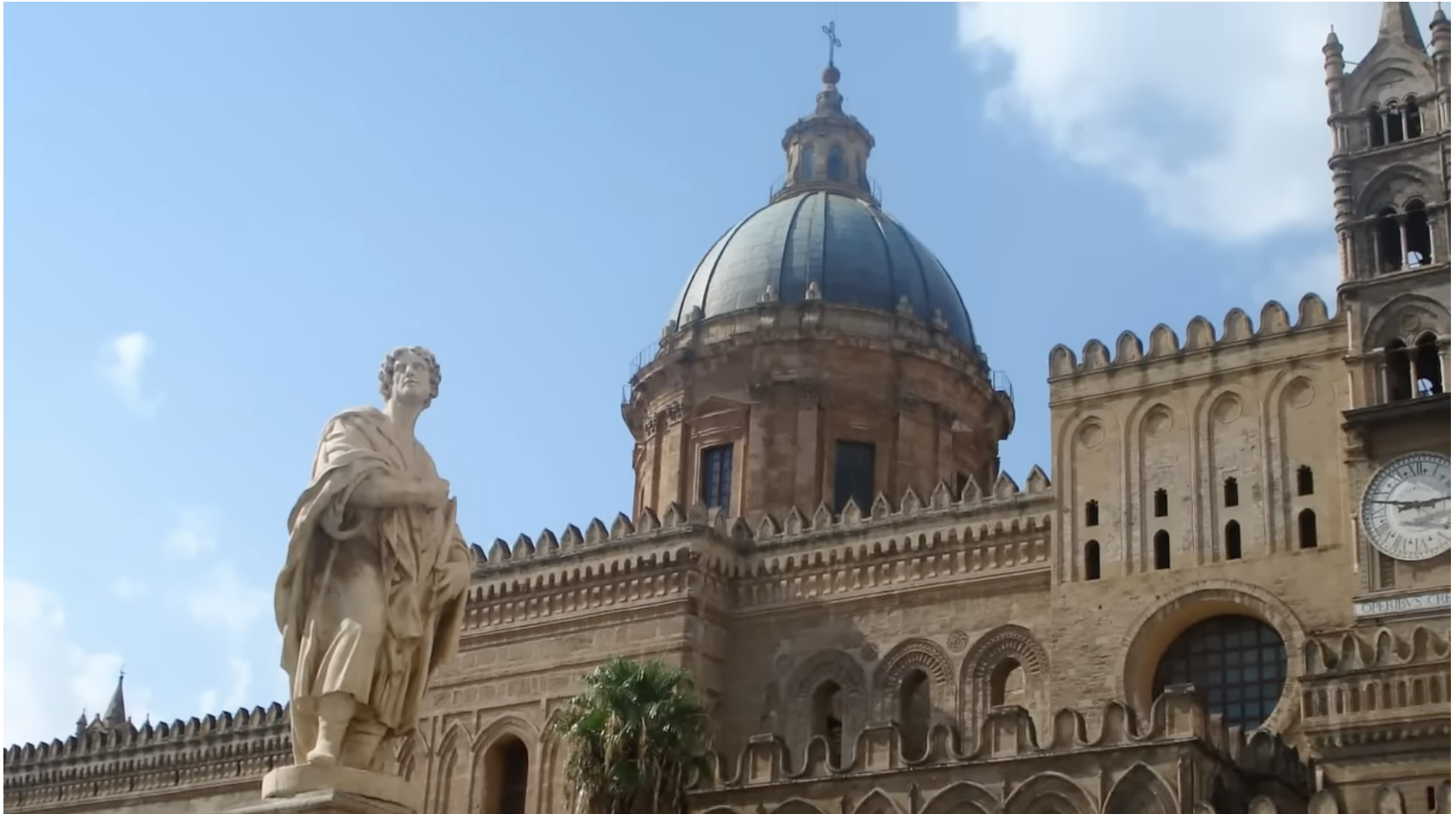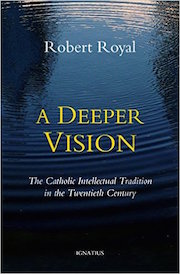In what is often called the “autobiography” of St. Ignatius Loyola – a work composed by an early companion of the Jesuits’ founder transcribing from memory recollections Ignatius had shared with him concerning his early life – the future saint recalls an incident that sheds light on the virtue of prudence along with much else.
Call it the story of Ignatius and the Moor.
One day in February or March of 1522, Ignatius, 30 years old at the time, was riding a mule on his way to the shrine of Monserrat when he was overtaken by a Moor. The two men rode together for a while and started talking about the Blessed Virgin. The Moor said he couldn’t believe she remained a virgin while giving birth to a child. Ignatius insisted that she did, and as they argued he grew increasingly agitated.
Seeing what was happening and becoming alarmed, “the Moor pressed on so fast that Ignatius lost sight of him. He remained pondering on what had passed . . . and there arose in his soul feelings of discontentment because, as it seemed to him, he had not done his duty. . . .So he conceived a desire to seek out the Moor and stab him for what he had said.”
“He had a long struggle over this desire, and at the end remained in doubt. . . .At last, tired of examining what would be best to do and unable to reach a fixed conclusion, he decided to drop the reins and let his mule go uncontrolled to the point where the roads divided. If the animal took the road to the town indicated, he would seek out the Moor and poniard him; if it kept to the high road, avoiding the town, he would let him be. . .”
“Though the town stood little more than thirty or forty paces away, and the road to it was very broad and good, it pleased God that the mule kept to the Camino Real and avoided the road to the town.”
And so the Moor was spared.
Great story, someone might say, but what’s it got to do with prudence?
Agreed, this incident didn’t exhibit Ignatius Loyola as a man of prudence – not at this point in his life anyway. It happened not so long after his conversion, and a lot of the old Ignatius can still be seen – a caballero with an acute sense of honor and a quick temper, ready to settle disagreements by violence.

In telling the story of the Moor to a fellow Jesuit, Ignatius knew that perfectly well. His aim, the autobiography records, was to edify: “in order that it may be seen how God was dealing with his soul, still blind, though greatly desirous of serving Him in every way it knew how.”
Notice those words “greatly desirous of serving Him in every way it knew how.” Here is the essential starting point and precondition for the virtue of prudence.
At the time of his encounter with the Moor, Ignatius lacked the spiritual maturity to see that killing the man was a less-than-Christian response to the dissing of the Virgin, and that leaving it to the mule to settle what he should do wasn’t the best way of discerning God’s will. But – and here’s the point – he nevertheless wanted, profoundly and fervently, to serve God as God wished, and his ignorance due to lack of formation didn’t change that. The recently converted Ignatius was already well on the way to becoming a man of Christian prudence.
Note that it’s the virtue of prudence we’re talking about here. There is also the purely natural prudence Aristotle describes. It, too, is desirable, but it can be placed at the service of bad ends, in which case the better name for it is calculation or cleverness.
Aristotle speaks of it in the Nicomachean Ethics (Bk. 6, Ch. 10), where he uses the word phronesis, generally translated as practical wisdom – essentially, the wisdom of knowing how to get from where you are to where you want to be. Here’s what he says:
It is prudence and moral goodness that make possible the full performance of the function of a man. It is due to virtue that the end we aim at is right, and it is due to prudence that the means we employ to that end are right.
For Aristotle, then, prudence is one thing and virtue something else. The two often work together, with virtue pointing to what is morally good and prudence indicating how to reach it. But that isn’t always the case. By contrast, the virtue of prudence is always directed, at least implicitly, to doing the will of God and growing in friendship with him. This is why the world may very well judge someone living a life consistently open to God to be lacking in good sense.
Prudence enjoys a kind of built-in priority in relation to the other virtues. Without prudence, justice can become legalism, fortitude can become rashness, temperance can become Puritanism.
But prudence doesn’t rule out mistakes. Even prudent people can be wrong. The difference is that the imprudent try to cover up their mistakes or else brazen them out, while people practicing prudence face up to their errors, correct them if they can, and learn from them. Ignatius Loyola was doing that in looking back on his encounter with the Moor.
The practice of prudence is relevant to choices that concern great things and small, including politics. Perhaps Americans need to take that to heart when reflecting on the results of political primaries that seem to be well on their way to presenting the nation with a choice in November between two resoundingly unacceptable candidates for the presidency. If ever there was a time when prudence in both its senses was needed in the conduct of public affairs, it’s now.















